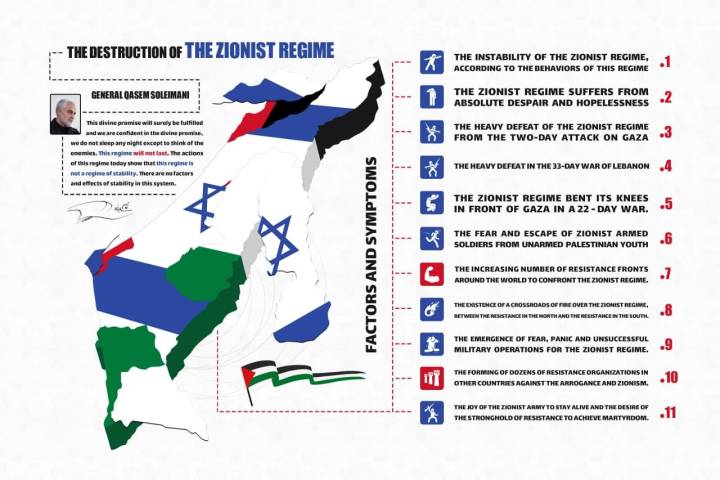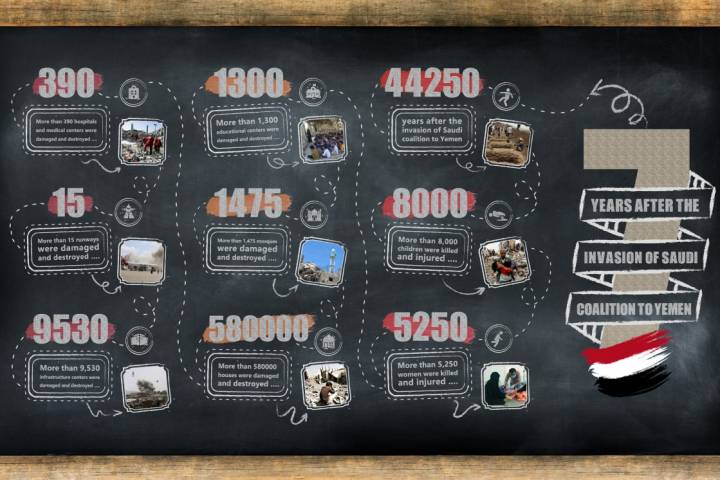Introduction
In the early morning of the 12th of Dey, 1398 in the Persian solar calendar, an aerial attack took place in the land of Iraq near Baghdad International Airport, resulting in the martyrdom of the commander of the Quds Force of the Islamic Revolutionary Guard Corps and 9 other fighters from the resistance front, including Abu Mahdi al-Muhandis. Following this event, the President of the United States, promptly accepted responsibility for this drone strike (NBC News, 2020; New York Times, 2020). The people and leaders of the Islamic Republic of Iran, who repeatedly spoke of seeking harsh revenge with the approval of the Supreme Leader, carried out a significant missile operation on the 18th of Dey, 1398, targeting the US military base known as Ain al-Assad in Iraq (Fars News Agency, 2020). Undoubtedly, this action is considered a violation of international law by the rogue elements within the United States (Dehnavi et al., 2020; Ghasemi and Setayeshpur, 2020) and holds the United States accountable for its international misconduct.
According to Article 2(4) of the United Nations Charter, as an organization whose fundamental mission is to maintain international peace and security, any recourse to force, and even the threat of it, is prohibited (UN Charter, 1945; Henderson, 2018). This commitment is firmly established in the field of international law, which has enshrined the customary international law principle of non-use of force. However, some argue that the prohibition of threats or recourse to force has transformed into a discretionary norm (Helmersen, 2014). Meanwhile, other interpretations have broadened and developed concepts such as the responsibility to protect, just defense, and preventive defense, expanding the scope of exceptions to the prohibition of threats or recourse to force (Jure, 2016). Nonetheless, it is essential that these cases have exceptional and exclusive characteristics and should not be subject to expansive interpretations (Jure, 2016). This theory has never been accepted in the legal thinking and practices of states and international organizations (Karamzadeh and Abedini, 2020).
With the missile attack by the Islamic Republic of Iran on the US military base, Ain al-Asad, a variety of theories and opinions have emerged. Each of these theories examines the mentioned action from the perspective of international law, and their range of opinions varies from legitimacy to absolute illegitimacy (O’Connell, 2021). In general, three reasons were mentioned for the retaliatory action: legitimate defense, just cause, and Iraq’s consent. However, it is not necessary to include the action within all of these cases, as each case alone is sufficient to consider the action legitimate. Nevertheless, due to the multidimensional nature of this international action, each dimension of the action can be deemed legitimate from one aspect.
This paper aims to examine the factors that contribute to the legitimacy of the missile attack by the Islamic Republic of Iran against the US military base in Iraq, known as Ain al-Asad, and separate the accepted aspects from the rejected ones. Therefore, the examination of each conceptual dimension will continue only to the extent that it is relevant to the current subject.
Retaliatory Action in the Legitimacy of the Missile Attack by the Islamic Republic of Iran against the United States:
Retaliatory action, including reasons and factors that do not negate the description of international law violations, is mentioned within the framework of the right to self-defense in the implementation of international responsibility. Some argue that it is better to examine Iran’s missile performance within the framework of retaliatory action in the international law. Article 22 of the 2001 International Law Commission refers to retaliatory actions against a violator state, stating that “if an action contrary to international obligations of a state is taken as a retaliatory action against another state, if it is proven to be correct and to the extent that it is carried out in accordance with the provisions of Chapter 2 of Part 3, the description of the violation of that action becomes void” (ARSIWA, 2001, Art. 22).
In fact, in the international system, due to the lack of effective executive mechanisms, compulsory judicial processes, and the power of international institutions to enforce regulations, enforcement is more dependent on the victims. Consequently, the main solution for victims is retaliatory actions (Kadkhodaei and Maghami, 2016, p. 33). If an action is taken in the form of a retaliatory action, the description of its violation becomes void (Seifi and Hasankhani, 2017, pp. 53 and 54).
Mutual action is taken to compel the delinquent party to fulfill its obligations, and the Islamic Republic of Iran has carried out these missile actions (1, Press TV, January 17, 2020) to enforce compliance with its international commitments. For instance, the action of the Islamic Republic of Iran in launching a missile attack on the US military base known as Ain al-Assad is aimed at compelling the delinquent country to fulfill its primary obligations, including preventing arbitrary deprivation of life and the occupation of regional countries, especially Iraq. Furthermore, it is carried out to fulfill secondary obligations, such as ensuring non-repetition and compensation for damages. Based on the principle of self-help in the exercise of international responsibility under international law, it is deemed justifiable.
However, according to Article 50(a) of the Articles on State Responsibility for Internationally Wrongful Acts (ARSIWA), reciprocal action should not be effective in terms of the commitment to refrain from the threat or use of force as stated in the United Nations Charter (1). Actions that involve the use of force in reciprocal action are referred to as acts of reprisal. It is true that reprisals exist in practice, but they do not have a place in substantive international law. Additionally, reciprocal action does not encompass the threat or use of force (ARSIWA 131 and 132, 2001). It is true that the United States itself has resorted to threats and even the use of force on several occasions, but such actions do not exist in the conduct of the Islamic Republic of Iran, which has consistently demonstrated adherence to legal norms (The Supreme Leader 4, 1397).
Although from the perspective of most countries, the threat of force has only a position in treaty and customary international law and has not been transformed into a rule of customary law (ICJ, Verbatim Records, 1995, 14, 28 and 30). It is worth noting that although the international community has incorporated most of the provisions in the Articles on State Responsibility for Internationally Wrongful Acts (ARSIWA) of the United Nations into its treaties and customary law, and even the fabric of customary international law has been woven around it, not all of its provisions have such a status (Ebrahimgol et al. 349, 2017). The International Law Commission itself has been very cautious in dealing with this issue, avoiding the modification and alteration of provisions or rules that have a progressive development aspect in the process of its codification (ARSIWA 31, 2001).
Despite the significant importance of the Articles on State Responsibility for Internationally Wrongful Acts (ARSIWA) of the United Nations in the field of state responsibility arising from internationally wrongful acts, it cannot be thought that everything stated in it is legally binding, as not all provisions have the character of elaboration, and the document itself has doctrinal value and consists of a mixture of drafting and progressive development (Pellet 22, 2004). Therefore, it is better to exercise caution and while attaching importance to the aforementioned provisions, neither consider it as a conclusive convention nor regard it as an ineffective document. With these explanations, two other factors, namely legitimate defense and consent, are examined, and given that the legitimacy of the mentioned action can be reached through these two factors alone, there is no need to rely on reciprocal action, as each of these factors is sufficient on its own and it is not necessary for all of them to exist as inseparable components and be proven.
2.Defense of the Islamic Republic of Iran against the United States’ attack
According to the provisions of the 2001 International Law Commission (ILC) Articles and Article 51 of the United Nations Charter, there are references to circumstances that transform the description of an unlawful act into an inherent right, thereby becoming an exception to the prohibition on the use of force (UN Charter, 1945, Art. 51). The difference between these two articles, Article 21 of the ILC Articles of 2001 and Article 51 of the UN Charter, is that, based on the explicit text of the ILC, the factors negating the characterization of illegality do not affect the prohibition on the use of force. On the other hand, Article 51 establishes the inherent right of self-defense as an exception to the prohibition on the use of force, effectively providing authorization to resort to force in exceptional circumstances (Henderson, 2018, 35).
The former Minister of Foreign Affairs of the Islamic Republic of Iran, based on the principle of justifiable defense enshrined in Article 51 of the UN Charter, considered the missile strike carried out by the Islamic Revolutionary Guard Corps against one of the most powerful and well-equipped US military bases in the Middle East as legitimate. Article 21 introduces the concept of justifiable defense as another category within the framework of the wrongfulness of the act (ILC, 2001, Art. 21). This article states that “if the conduct of a State constitutes a lawful measure of self-defense in accordance with the United Nations Charter, the wrongfulness of that conduct is excluded.” Undoubtedly, as long as an action falls within the framework of justifiable defense, it cannot be considered wrongful.
However, an expansive interpretation of justifiable defense should be avoided. It is necessary to rely on the clear text of Article 51 of the UN Charter (UN Charter, 1945, Art. 51). According to this article, if an armed attack occurs against a country, the attacked country has the inherent right to self-defense. As long as the United Nations Security Council fails to take appropriate measures, the defending country possesses this right. This right can also be exercised collectively (O’Connell, 2021, 6 and 20). The International Court of Justice, as a court with global jurisdiction in matters of international law, reflected the limits and scope of justifiable defense according to Article 51 of the Charter in its consideration of the case concerning military and paramilitary activities in and against Nicaragua, in which Nicaragua initiated proceedings against the United States (ICJ Rep., 1986, para. 176). The Court stated that if a country defends itself against an armed attack, it must observe the principles of proportionality and necessity (ICJ Rep., 2005, 147). These points were emphasized in other cases heard by the Court, including the 2005 case regarding the Congo (ICJ Rep., 2005, 147).
Considering the urgency of action by the Islamic Republic of Iran, as well as its appropriateness in response to the unlawful acts of the United States, and given that Iran’s action against a military base, which according to official statements of the country’s authorities was not intended to cause human casualties (even among military personnel), it can be well understood that there were circumstances justifying justifiable defense.
Furthermore, in the system of sources of international law, the hierarchy and primacy of customary law and customary norm over other sources of international law are recognized. It is therefore necessary to emphasize the value of this rule as a treaty rule based on customary law (Helmersen, 2014, 180 and 181; Green, 2011). It is important to note that in the subject of international humanitarian law, justifiable defense is considered an inherent right (O’Connell, 2021, 29). Therefore, even if the Charter does not explicitly refer to it, the right to justifiable defense still exists.
The Islamic Republic of Iran has consistently emphasized that it has never been the initiator of war and aggression (O’Connell, 2021). The Supreme Leader has also emphasized that the Islamic Revolution of Iran, despite being a powerful nation, is compassionate, forgiving, and even oppressed (O’Connell, 2021). According to international human rights standards, the deprivation of the lives of citizens of other countries without fair trial and due process is a gross violation of the right to life (Rashidi, 2020). Additionally, the United Nations Charter prohibits the use of force and emphasizes respect for the sovereignty of nations, making direct attacks on the interests of the Islamic Republic of Iran and the territorial integrity of Iraq a clear act of aggression (Rashidi, 2020).
It is evident that the United States’ action of assassinating General Soleimani is not legally justified and constitutes a violation of international commitments (Ibrahimi, 2021). This violation of international commitments, attributed to the United States, is not an isolated incident but rather a series of actions that demonstrate a systematic pattern (Ibrahimi, 2021). The drone strike mentioned was just one part of this chain, which would have continued if not for the defensive response from the Islamic Republic of Iran (Ibrahimi, 2021).
In line with this trend, the remarks of the former President of the United States, Donald Trump, claiming that 52 cultural sites in Iran would be targeted, are also indicative of this serial behavior (YJC News Agency, 2020). This serial nature of actions has also been evident in the case of the assassination of Iranian scientists (YJC News Agency, 2020).
Contrary to the claims made by the United States and the Zionist regime that they are pursuing preemptive and anticipatory self-defense, these actions do not fall within the realm of recognized international law and are in clear violation of international law (O’Connell, 2021). The concept of preemptive or anticipatory self-defense, as practiced and advocated by the United States and the Zionist regime, is not accepted in international law, and it is in explicit contradiction with international law (O’Connell, 2021).
The defense by the Islamic Republic of Iran was not preemptive or anticipatory, but rather a legitimate defense against an armed attack (O’Connell, 2021). This action is acceptable under Article 51 of the United Nations Charter, which recognizes the inherent right of self-defense for any country (O’Connell, 2021). The acceptance of the Iranian defense is in line with the United States’ broad interpretations of the doctrine of self-defense (Abramowitz, 2013; Baqeri et al., 2017; Bellamy, 2014).
It should be noted that Iran should not be regarded as engaging in justified defense against an armed conflict, as this would require the existence of an armed conflict. Justified defense applies both in situations of armed conflict and situations of armed attack (Schmitt, 2012; Brandis, 2017). The action by the Islamic Republic of Iran was a legitimate defense against an armed attack and should not be compared to the actions carried out by the United States and the Zionist regime under the claim of justified defense (Schmitt, 2012; Brandis, 2017).
In this situation, the noncompliant action of the United States is evident and is not akin to the events of September 11, 2001 (Washington Post, 2020). Another important point is that the action has already been realized and is on the verge of further consequences (Washington Post, 2020). It is not a situation where premature allegations are made.
3 The satisfaction of the government of Iraq
Satisfaction is another factor that has been raised regarding the actions of the Islamic Revolutionary Guard Corps (IRGC) in the West Asia region. Article 20 of the 2001 Articles on State Responsibility for Internationally Wrongful Acts by the International Law Commission of the United Nations defines “consent” as one of the factors that precludes wrongfulness in relation to the responsible state’s actions if it is in the territory of the consenting state (ARSIWA, 2001, Art. 20). According to this article, “valid consent by a state to the commission of a particular act by another state precludes wrongfulness in relation to the first state to the extent that the act remains within the consent” (ARSIWA, 2001, Art. 20). The wrongfulness of an act, which entails the international responsibility of the offending state according to Article 1 of the 2001 Articles on State Responsibility, is eliminated if there is consent (Delerue, 2020, 343).
Here, the term “satisfaction” refers to prior consent; in other words, satisfaction as a determining factor of wrongful description must precede the commission of the act. This is because satisfaction after the commission of an internationally wrongful act is considered as a mode of reparation. Prior consent eliminates the wrongful description of the act, whereas subsequent consent differs. Posterior consent falls within the realm of remedies and claims for compensation, not as a factor of wrongful description (Paddeu, 2018, 156 and 157). A distinction must be made between the state of satisfaction and the acquisition of consent. “Satisfaction” is a factor that constitutes the wrongful description of an internationally wrongful act, while “acquisition of consent” is a form of reparation for damages.
The issue of satisfaction must also be interpreted in a restrictive and exclusionary manner, avoiding an expansive interpretation of the concept. The interpretation must be in favor of the principle, not the expansion of the scope of exceptions. The causes and factors that constitute the wrongful description of an act, as discussed in Chapter V of Part I of the 2001 Articles on State Responsibility, have exceptional aspects. Therefore, any action that is considered the use of force (regardless of its name or form, such as targeted killings) must fall within one of the exceptions to the prohibition on the use of force. In this regard, according to Article 2(4) of the United Nations Charter, as confirmed by customary international law, it is prohibited to use force without the permission, notification, and consent of the country in question (Azizi, 2020, 126). In the broader American perspective on counterterrorism and targeted killings, if a country is unable to combat terrorism, it can take action against terrorism without the permission, notification, and consent of that country in its territory (Azizi, 2020, 126). The Americanization of international law poses a significant and dangerous threat to the contemporary international law (Zamani and Berelian, 2020, 96-95). In fact, the Zionist regime and the United States have put forward the theory of “targeting terrorists” under the pretext of counterterrorism and seek to expand it (Azizi, 2020, 126).
Therefore, the conditions for an armed conflict between the Islamic Republic of Iran and the United States do not exist, and the claim to rely on the mentioned clause by the United States can be seen as a local deception of the Arabs (Rashidi, 2020, 108).
The use of force by the Islamic Republic of Iran in Iraq is justified by the principle of self-defense. The international community, including international organizations such as the United Nations, has recognized the importance of consent as a factor in determining the legality of actions taken by a foreign state (Rashidi, 2020; Paddeu, 2018). The United Nations Security Council has not considered Iran’s actions in Somali-controlled territory as a threat to international peace and security, but rather as a contribution to peace and international security (Paddeu, 2018).
The General Assembly of the United Nations has repeatedly emphasized the need for international cooperation to combat maritime piracy, including in its Resolution 2317 of November 2016 (ARSIWA, 2001, Art. 20). However, these resolutions do not have legal binding force and serve as a call to action for the international community to address piracy. The previous consent of the Somali government has facilitated Iran’s actions in the country, aligning them with international law rather than constituting a violation of international rights (ARSIWA, 2001, Art. 20).
Similarly, in the case of Iran’s actions in Iraq, it is the consent of the Iraqi government that justifies the operations of the Islamic Revolutionary Guard Corps (ARSIWA, 2001, Art. 4). While consent can lead to a violation of the principles of international law, in this case, it grants permission for actions to be taken on the territory of the consenting country (ARSIWA, 2001, Art. 20).
Consent in legal terms has been recognized in various contexts, even in armed conflicts, as a general principle. However, given that the situation at hand does not constitute an international armed conflict, the issue of invitation to military intervention does not arise (Ziaei and Yadaei Manab, 2016).
Consent can also be implied and does not necessarily have to be explicit. It should not be subject to unrealistic interpretations or far-fetched assumptions. The authorization is valid as long as there is existing consent, and it should not be given an expansive interpretation (Ziaei and Yadaei Manab, 2016).
Therefore, it can be argued that Iran’s actions in Iraq do not violate the sovereignty of the country and are not a breach of territorial integrity and sovereignty (Ziaei and Yadaei Manab, 2016).
Conclusion
The targeted airstrike carried out by a drone, under the direct order of the President of the United States, contrary to international legal obligations, including Articles 4 and 7 of the United Nations Charter and also the International Bill of Rights (Article 3 of the Universal Declaration of Human Rights and Article 6 of the International Covenant on Civil and Political Rights), constitutes a clear violation of international law. These provisions have become customary international law. This unlawful act was committed at the direction of Donald Trump, attributed to the United States, as reflected in the customary international law principle contained in Article 4 of the 2001 Articles on State Responsibility of the International Law Commission. Therefore, there is no doubt about the illegality of the United States’ action, as both elements of attribution and violation of international obligations have been established.
This flagrant violation of international law has caused unrest among people in different parts of the world. The Islamic Republic of Iran, which has always been at the forefront of combating terrorism and extremism, immediately spoke of seeking revenge and swiftly targeted the United States military base in Iraq, known as Ain al-Asad, with over 12 missiles. What matters in international law is that authors have a consensus on a concept in international law, regardless of its terminology (regardless of what it is called). Although there is no provision for revenge in international law, the authors of the mentioned actions must be examined in the context of international law. If an action has been accepted as a legal proposition but its authors do not possess the legal elements of that proposition, it will not be considered legal. On the other hand, if an action possesses the conceptual authors of legal propositions but does not have the mentioned proposition as its label, it will certainly fall within the framework of that proposition in international law. This issue has been raised in other areas of law, including treaties in international law.
Therefore, three cases of reciprocal action, legitimate defense, and consent regarding the legitimacy of Iran’s missile strike are relevant in international law. In substantive international law, not only the use of force is prohibited, but also the threat of force is prohibited. However, according to customary international law derived from rational propositions, there are no absolute rules unless they are qualified. Without a doubt, the rule prohibiting the threat or use of force may be breached in certain cases, and military action may be lawful. According to customary international law reflected in Article 20 of the 2001 Articles on State Responsibility of the International Law Commission, Iran’s action, unlike the United States’ action on Iraqi territory, is not considered intervention in the affairs of that country and a violation of its territorial integrity due to the consent of Iraq. Iraq’s consent makes the action by the Islamic Revolutionary Guard Corps, affiliated with the Islamic Republic of Iran, permissible on Iraqi soil.
Moreover, the Iranian missile strike on the military base in Iraq should not be labeled as a disproportionate or unlawful use of force. In terms of international law, considering the repeated and unlawful actions of the United States, Iran’s action can be seen as a necessary defensive measure to break the chain of international law violations (United Nations, 1945). The consent of Iraq further legitimizes Iran’s action within its territory (United Nations, 1945).
The Islamic Revolutionary Guard Corps (IRGC), as an official institution of the Islamic Republic of Iran, operates within the framework of Article 4 of the 2001 Montevideo Convention (United Nations, 1933). Therefore, their operation in Iraqi territory does not violate the territorial integrity of Iraq by the Iranian government, and it can be regarded as a legitimate defense rather than a preemptive or anticipatory one (United Nations, 1933).
In the case of retaliation, “Harsh Revenge” is a political slogan reflecting the will of the Iranian Islamic community, which must be evaluated based on the legal principles of international law (Yazdani, 2021). Merely using similar terms does not justify categorizing Iran’s missile strike as an act of reprisal, as it would be prohibited under international law (United Nations, 1945).
To assess the mentioned actions, it is crucial to consider the legal implications in accordance with international law. Therefore, characterizing the Islamic Republic of Iran’s missile strike as a retaliatory action, in the sense that it is prohibited under international law, would not be accurate (United Nations, 1945).
5






Comment
Post a comment for this article